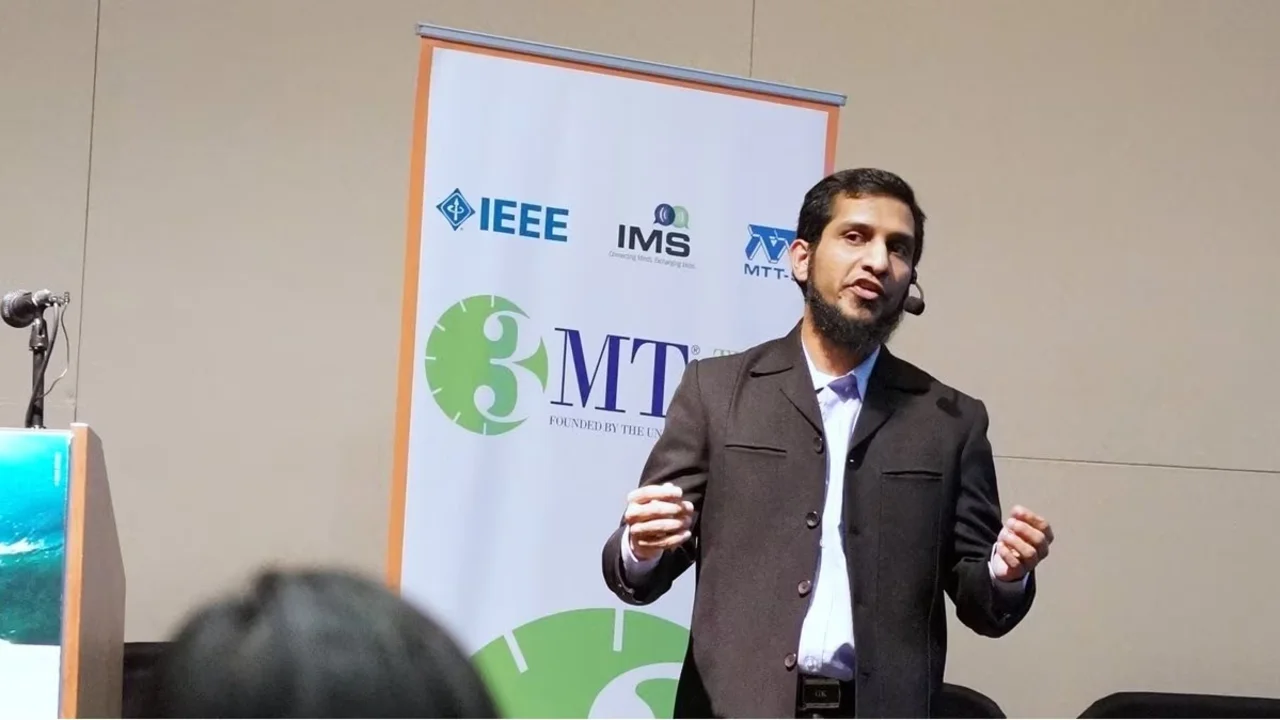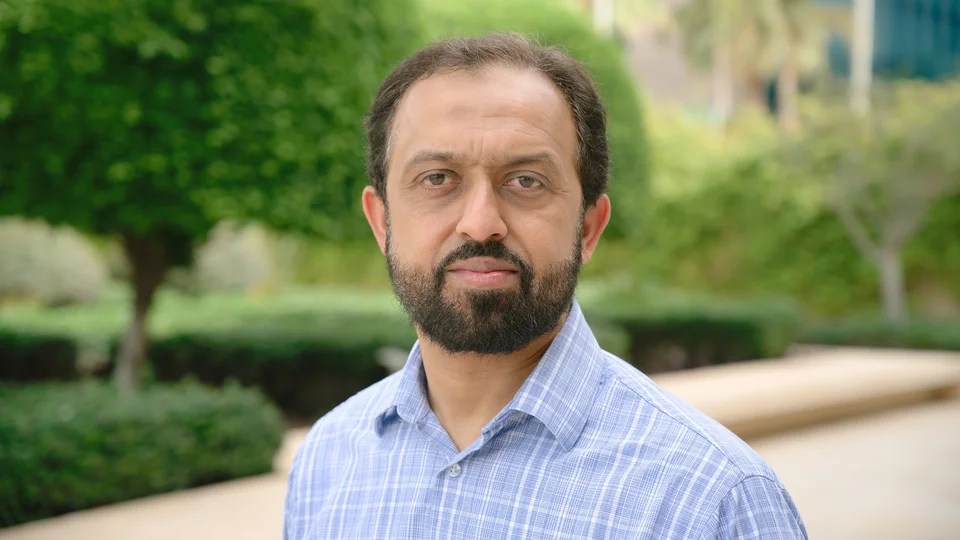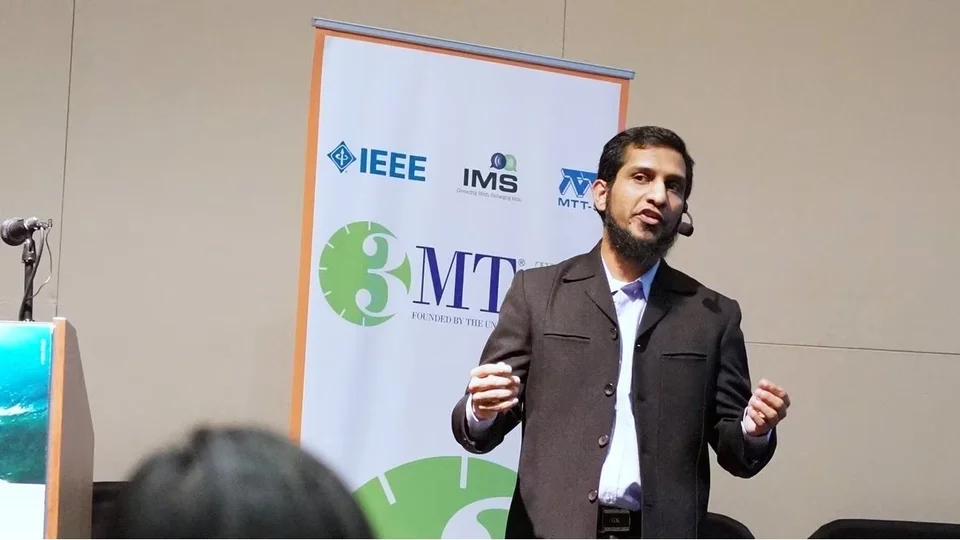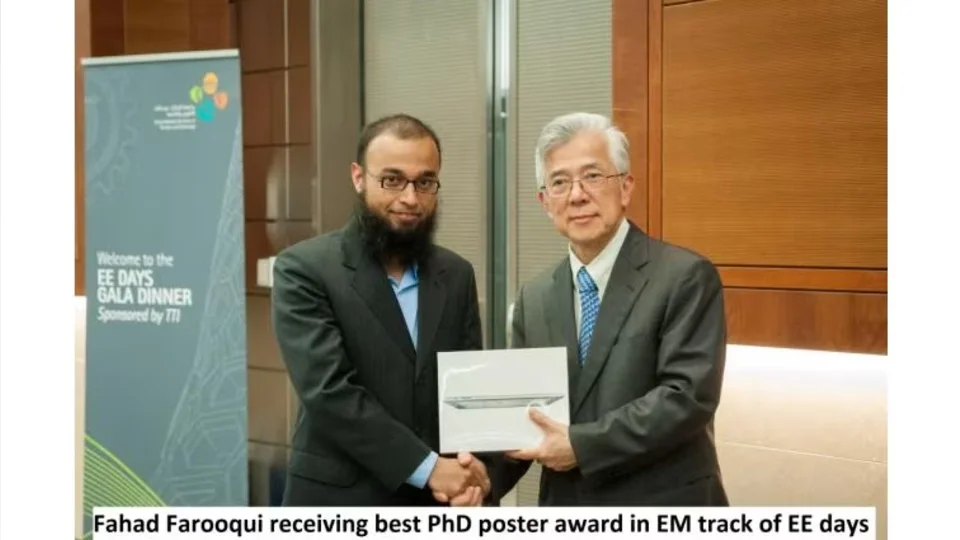
Two KAUST students selected for the Three Minute Thesis 3MT competition final at IMS2017
This year, KAUST took the lion's share at the Three Minute Thesis (3MT(R)) contest at the annual IEEE microwave symposium IMS2017, with two students selected to take part in the final and one of them - Dr. Farhan Abdul Ghaffar - finishing within the top 4 and getting Honorable Mention for his presentation.
About
-By Francesca Serra
This year, KAUST took the lion's share at the Three Minute Thesis (3MT(R)) contest at the annual IEEE microwave symposium IMS2017, with two students selected to take part in the final and one of them - Dr. Farhan Abdul Ghaffar - finishing within the top 4 and getting Honorable Mention for his presentation.
Dr. Muhammad Fahad Farooqui, also judged among the top 20 participants and selected for the final, was not able to participate in the contest held in Honolulu, Hawai'I, because of not obtaining the visa in time.
After an attentive selection from the 3MT'judges that took the number of speakers down to 20 from a highly competitive pool of 157 students, KAUST resulted in being the only university having two representatives in the final.
"This achievement is the testament to the outstanding value of the work carried out by KAUST students during their PhD," Atif Shamim, Professor of Electric Engineering at KAUST and director of the IMPACT Lab, proudly commented "and acknowledges KAUST as an international research driver in the area of microwaves."
Both KAUST finalists, Farooqui and Ghaffar, did their Ph.D. studies at the Integrated Microwaves Packaging Antennas and Circuits Technology (IMPACT) Laboratory, where they conducted cutting edge research studies to develop innovative designs of antennas and RF circuits for integration in wearable sensors with a large array of biomedical, environmental and industrial applications.
Ghaffar's work, presented in the 3-minute speech "Don't Talk Back!", investigates the core of Microwave Engineering theoretical concepts in the attempt to bring new applications into satellite communication, where one of the key problem awaiting solution is the tuning and reconfiguration of high frequency components. Ghaffar's research focused on the important advantages that magnetic tuning offers to satellite communication where linearity and high power handling capability are critical issues. The results achieved with the magnetic approach proved to be highly effective compared to existing methods, in terms of smaller form factor, lower cost and lower power consumption.
When asked about his passion for Microwave Engineering, Ghaffar explained "Electromagnetics (EM) is one of the most challenging topics of Electrical Engineering because it sits on robust complex mathematical concepts, and my interests have always been in mathematical sciences and applied physics. The second reason is that I really enjoy working hands on into the design and development of high frequency components using the theoretical background that I acquired. Having these two passions to feed at once, Microwave Engineering was for me the obvious choice."
Ghaffar currently works as a Post-Doctoral Fellow and Instructor in the Faculty of Applied Science and Engineering at University of Ontario Institute of Technology (UOIT), Canada, after having completed in 2016 his PhD at KAUST under the supervision of Professor Atif Shamim in the Electrical Engineering Program of the Computer, Electrical and Mathematical Sciences & Engineering (CEMSE) Division of KAUST.
"I think that KAUST's strength is the top-level faculty involved in teaching and guiding the students along their research path. This is one of the primary reasons why I chose to do my studies at KAUST," Ghaffar said "but also lab equipment and facilities at KAUST are second to none. I have visited some North American institutes during my graduate studies and I have seen the deep difference between the labs we have at KAUST and the ones of other institutes. In short, I think that top-quality teaching and unmatched facilities it's the recipe that makes possible, for KAUST students, to achieve incredible results."


